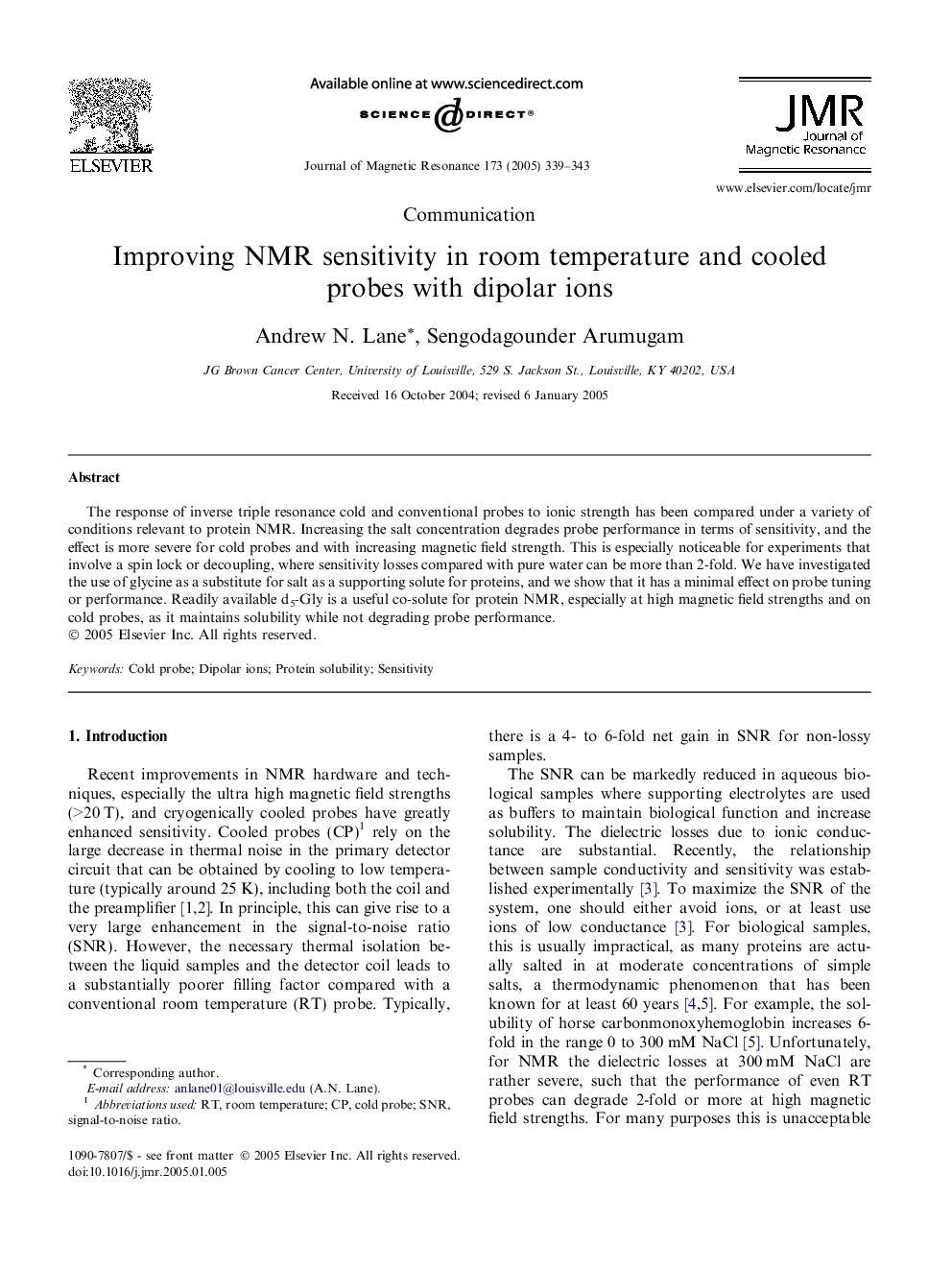| Article ID | Journal | Published Year | Pages | File Type |
|---|---|---|---|---|
| 9587493 | Journal of Magnetic Resonance | 2005 | 5 Pages |
Abstract
The response of inverse triple resonance cold and conventional probes to ionic strength has been compared under a variety of conditions relevant to protein NMR. Increasing the salt concentration degrades probe performance in terms of sensitivity, and the effect is more severe for cold probes and with increasing magnetic field strength. This is especially noticeable for experiments that involve a spin lock or decoupling, where sensitivity losses compared with pure water can be more than 2-fold. We have investigated the use of glycine as a substitute for salt as a supporting solute for proteins, and we show that it has a minimal effect on probe tuning or performance. Readily available d5-Gly is a useful co-solute for protein NMR, especially at high magnetic field strengths and on cold probes, as it maintains solubility while not degrading probe performance.
Keywords
Related Topics
Physical Sciences and Engineering
Chemistry
Physical and Theoretical Chemistry
Authors
Andrew N. Lane, Sengodagounder Arumugam,
